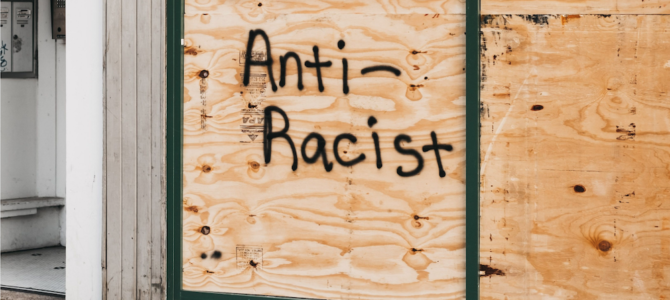Every once in a while, something happens that is simultaneously absolutely amazing and perfectly predictable. This past week, one of those instances occurred as months of brutal lockdown meant to fight the Chinese virus melted away on the streets of our nation’s cities. In the wake of the brutal police killing of George Floyd, the only thing more powerful in the progressive mind than stopping the virus emerged. Racism.
For many Americans, especially among the affluent, celebrity, and opinion-making portion of the population, the lockdown was just an inconvenience. For others — the working class, the mourning, the small business owner — it brought poverty, depression, and even hunger. It makes sense that the former group views fighting racism as orders of magnitudes more important than what befell the latter, because they didn’t experience that deprivation.
But there was still this pesky problem of the coronavirus. After all, for months large gatherings were considered not only dangerous, but immoral. In order to justify the protests, those gatherings had to be shown to be safe and good. For honest politicians and an honest media, this would be a tall hill to climb. But much of our current crop of elected officials and scribes simply waived the issues away with magic words.
The source of these shibboleths that no decent person may even argue with is what Columbia University professor John McWhorter calls “anti-racism as religion.” In 2018, he wrote:
Third-wave antiracism is a profoundly religious movement in everything but terminology. The idea that whites are permanently stained by their white privilege, gaining moral absolution only by eternally attesting to it, is the third wave’s version of original sin. The idea of a someday when America will “come to terms with race” is as vaguely specified a guidepost as Judgment Day. Explorations as to whether an opinion is “problematic” are equivalent to explorations of that which may be blasphemous. The social mauling of the person with “problematic” thoughts parallels the excommunication of the heretic.
McWhorter is exactly right. Anyone who doubts any of this need look no further than the videos of Americans kneeling before black people reciting prayers of confession. Many on the right criticize such things as performative, but they are wrong. To its practitioners, this sacrament of anti-racist faith is as deep and profound as a Catholic kneeling to say the rosary.
One of the fascinating things brought into focus over the past few days of protests and nights of mayhem is that while Christians, Muslims, and, in Bill de Blasio’s New York, especially Jews were pointedly prohibited from practicing, the religion of anti-racism superseded all other concerns.
In some sense, at least in progressive cities, this almost represents a state-sanctioned religion. It is the only one local governments allow to congregate, it is taught in public schools, Pulitzer Prizes are given for inaccurate writings that honor its tenets, and those who dare speak against it may face state sanction.
Even scientists, the traditional foes of blind religious faith, found ways to bend to the rules of intersectionality. According to NPR, dozens of epidemiologists signed a letter in which they offered support for the protests, writing, “White supremacy is a lethal public health issue that predates and contributes to Covid-19.” Are the addiction, poverty, and hunger caused by the lockdown not lethal public heath threats? Where is the Galileo to put science above faith?
The fact that this is what ended the lockdown shows that today’s anti-racism efforts are not only powerful, but arguably the most powerful force in American discourse. Hundreds of millions obeyed unprecedented and strict prohibitions on mass gatherings for months on end, and just like that, it was over.
But we are also seeing the limitations of this approach to anti-racism. It is by its own admission a one-way conversation. Whites are to listen and accept. And there’s a sizable chunk — again, mainly college-educated and fairly well off — who not only accept that, but find great comfort in it, since it absolves them of actually having to do anything.
For another segment, likely a far larger one, they do not accept that their voices and ideas have no place in the conversation. To them racism is not a hidden pernicious structural issue, but rather a personal issue of treating people equally regardless of skin color. So long as they are left out of the conversation, it’s not a conversation at all, it’s just a sermon.
A friend recently remarked to me, “God bless the protesters for ending this lockdown,” and I heartily agree. But by placing race on the pedestal above all other concerns, even the dreaded deadly virus, we make it harder to talk about and harder to deal with. Ultimately, we make racism harder to fight.









